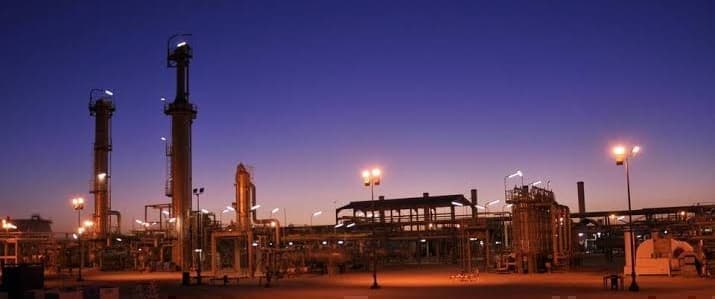Several oilfields across Libya have halted production as closures spread, engineers reported on Tuesday, amid a dispute over control of the central bank and oil revenues. Mohammed al-Menfi, head of the Presidency Council in Tripoli, had issued a decision to replace Central Bank head Sadiq al-Kabir and the bank's board, a move rejected by the eastern parliament.
On Monday, authorities in the east, where most of the oilfields are located, threatened to shut them all down, escalating their standoff with the internationally recognized government in Tripoli, which relies heavily on oil revenues. Prime Minister Abdul Hamid Dbeibah of the Government of National Unity, based in Tripoli, condemned the shutdowns, stating that oilfields should not be closed "under flimsy pretexts."
A complete production shutdown
By Tuesday, Libya’s oilfields were in the process of shutting down. Engineers confirmed that oil production at the El Feel oilfield in southwestern Libya had stopped, and production at several other fields in the east and southeast had either halted or been reduced. Local operators indicated to Bloomberg that production would gradually cease nationwide.
Libya’s oil production, which averaged 1.2 million bpd before the closures, has fluctuated in recent months, with major disruptions occurring in August and January due to political unrest. The current shutdown stems from renewed tensions between Libya’s east and west, particularly over the leadership of the Central Bank of Libya, which oversees the country's oil wealth.
Impact on oil markets and shipping
Experts are assessing the impact on global oil markets. Kpler noted the shutdown impacts key ports including Marsa Al Hariga, Zueitina, Marsa Al Brega, Ras Lanuf, and Es Sider. Europe is the leading destination for Libyan barrels, and "increasingly so in recent years" - accounting for 85% of exports this year according to Kpler's Matt Smith. With Libyan crude primarily light sweet, "European refiners will likely turn to the U.S. and West Africa to replace it."
Related: Asia's Top Refiner is Struggling With Weak Fuel Demand in China
For the shipping industry, the shutdown presents mixed outcomes. In an article from Tradewinds, Fearnley Securities commented, "Although lower volumes generally have a negative impact, reduced Libyan exports have already affected aframaxes. However, the shift to Atlantic barrels could boost tonne-miles, as OPEC+ is unlikely to increase exports in response to this situation." According to leading shipbroking company Pareto, Libya exported some 1.04 million bpd on average over the last 12 months, most of which went to Spain, Italy and France. Pareto notes that replacement barrels may have to be found “further afield’’.
Libya’s long history of supply outages.
At the moment, it’s difficult to say how long the outage will last. The longest shutdown of Libyan oil production occurred from January 2020 to September 2020, and lasted around nine months. This shutdown was triggered by forces loyal to Khalifa Haftar, the leader of the Libyan National Army (LNA) based in Benghazi, who blockaded key oil facilities as part of a broader political and military conflict against the UN-recognized Government of National Accord (GNA) in Tripoli.
During this period, Libya's oil production plummeted from around 1.2 million barrels per day (bpd) to less than 100,000 bpd, severely impacting the country's economy. In 2020, the continued loss of income pushed both sides to the negotiation table. Shorter outages in production have lasted anywhere between a few weeks and a couple of months, the last of which occurred in 2022 when local militias blockaded oilfields, including the largest Sharara oilfield, which led to a one-million barrel per day loss in production.
ADVERTISEMENT
By Tom Kool for Oilprice.com
More Top Reads From Oilprice.com
- Net-Zero Scenarios Underestimate Energy Demand Growth, Gas Union Says
- U.S. Expands Sanctions on Entities Involved in Russia’s Arctic LNG 2
- Republicans and Democrats Sharply Divided on Energy


















Libyan oil has become a mere footnote for the global oil market. However, the EU may face a logistical problem replacing Libyan oil exports depending on how long the disruption lasts.
Dr Mamdouh G Salameh
International Oil Economist
Global Energy Expert